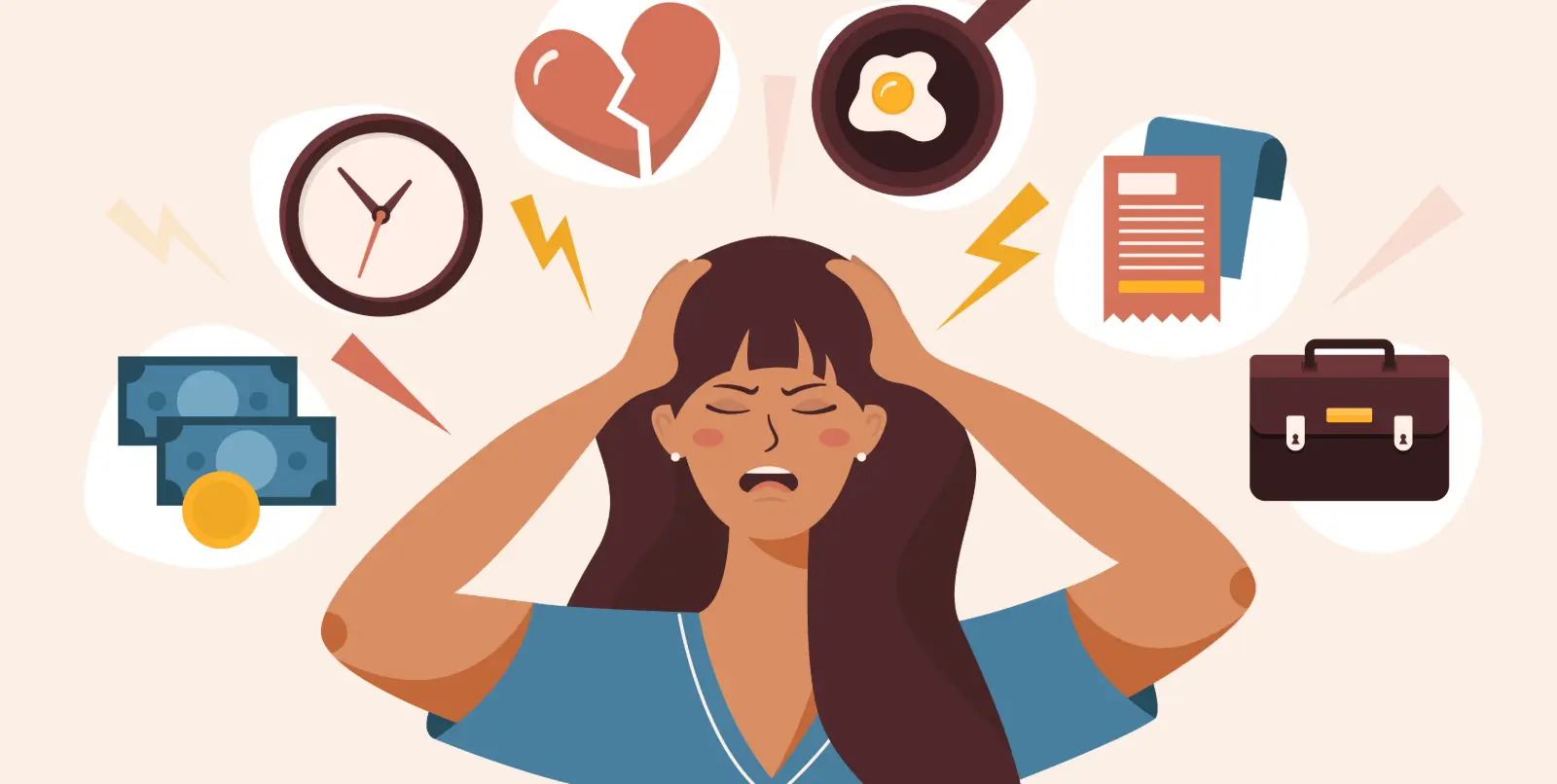
Some mornings begin with tightness in the chest. Others begin with restlessness in the hands. You feel the worry before you understand where it’s coming from. Nothing specific causes it. But the discomfort is real. The tension grows. The stillness feels unsafe.
Cortisol rises early. That’s its job. But when it stays elevated, anxiety follows. And not just in thought—in breath, in heart rate, in sleep patterns. It sharpens your awareness until everything feels like too much. It doesn’t ask for permission. It simply arrives.
And behind it all, hormonal imbalance continues. Shifting in the background. Silently pulling the strings of emotional response. Not enough to scream. Just enough to blur the edges of comfort.
Anxiety doesn’t always begin in the mind
It’s easy to blame the brain. But sometimes, the fault lives deeper. Anxiety doesn’t always begin in the mind. It often begins in the glands. The thyroid. The ovaries. The adrenals.
Estrogen drops suddenly before menstruation. That dip causes mood instability. Some cry. Others grow irritable. But few realize it’s hormonal. Progesterone usually balances this, calming the nervous system. But when it’s low, anxious thoughts surge.
Thyroid hormones do something similar. Hyperthyroidism pushes everything too fast. Heart, mind, digestion. Hypothyroidism slows everything—but leaves a fog. A weight that mimics depression. And through it all, the nervous system keeps trying to find a steady pace.
It’s not just stress—it’s the body sending too many signals at once
Stress hormones aren’t inherently bad. They’re protective. But they become disruptive when unregulated. It’s not just stress—it’s the body sending too many signals at once. And the brain struggling to prioritize them.
One hormone says “run.” Another says “rest.” And you freeze in between. That’s anxiety born from imbalance. The body tries to adjust. It tries to compensate. But the messages never align.
Over time, this wears down resilience. It becomes harder to separate thought from sensation. You’re not sure if you’re afraid, or just out of sync. You breathe faster. Your hands sweat. And still, you’re sitting in a safe room.
Hormones don’t ask what you believe—they respond to what they feel
You might know you’re okay. You might repeat it to yourself. But the body won’t listen. Hormones don’t ask what you believe—they respond to what they feel. Blood sugar dips. Cortisol rises. Estrogen lowers. And anxiety rushes in.
This is why affirmations sometimes fail. Why meditation doesn’t always help. Because you’re not dealing with thought—you’re dealing with internal noise. Chemical waves crashing against logic.
The gut feels it too. Digestion slows. Appetite disappears or spikes. Serotonin, most of which lives in the gut, stops communicating clearly. You feel unsettled. And you don’t know why.
Your body isn’t broken—it’s trying to understand itself
The most frustrating part is not having answers. Tests come back “normal.” People suggest deep breaths. But the signals don’t calm. Your body isn’t broken—it’s trying to understand itself. With hormones that no longer follow the same rhythm.
Fluctuations aren’t mistakes. They’re attempts at balance. But those attempts sometimes cause collateral damage. Emotional turbulence. Physical unease. A general sense of disconnection from self.
You try adjusting sleep. Cutting caffeine. Walking more. Sometimes it helps. Sometimes it doesn’t. Because the root isn’t in behavior—it’s in the chemical messengers that drive behavior.
Small shifts in hormones create big shifts in mood
We expect big problems to come with big signs. But that’s not how hormones work. Small shifts in hormones create big shifts in mood. A few points difference in progesterone can change your whole day.
You feel jittery without caffeine. You cry over small things. You dread tasks you handled easily before. None of it feels explainable. But it is traceable—to the systems that regulate calm, energy, and focus.
And because it fluctuates, you question yourself. Yesterday was fine. Today feels impossible. And tomorrow? Unpredictable. That’s what makes it feel so isolating.
Even rest becomes exhausting when hormones lose their rhythm
Sleep should restore. But it doesn’t. Even rest becomes exhausting when hormones lose their rhythm. You wake up tired. Dreams feel strange. Or you don’t sleep at all.
Melatonin delays. Cortisol stays high. And the cycle repeats. The body can’t rebuild without pause. But pause feels unreachable. Your eyes close, but your mind doesn’t.
This isn’t insomnia. It’s imbalance. And it won’t fix itself in a night. It takes time. Consistency. Patience. And the right type of support—not just sleep hygiene advice.
You can’t force calm when your hormones are in crisis
People might say it’s in your head. But it’s in your blood too. You can’t force calm when your hormones are in crisis. Deep breathing only works if your chemistry allows it.
You need to investigate the roots. Hormone panels. Cycle tracking. Cortisol patterns. Thyroid levels. These offer clues. Not everything will be obvious. But some pieces will shift into place.
And with each piece, you begin to feel grounded again. Not fixed. Not perfect. But no longer drifting inside your own skin.
